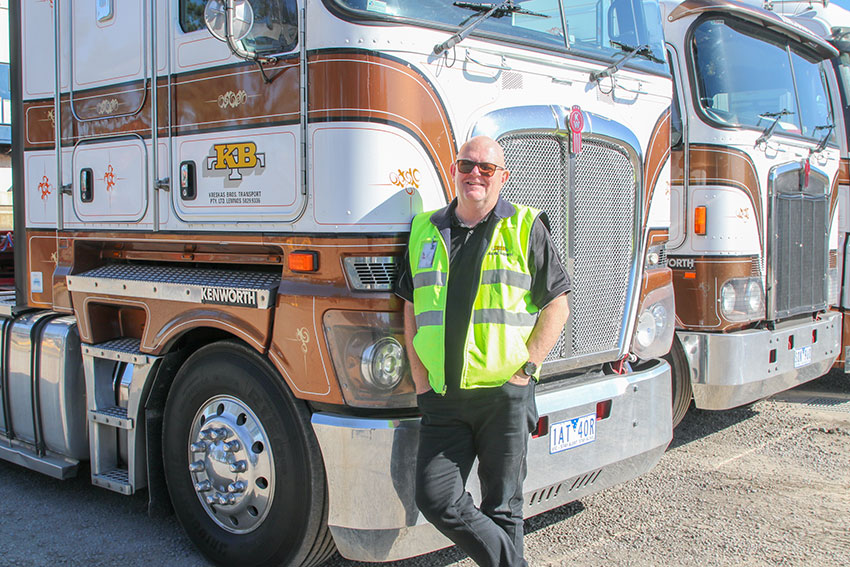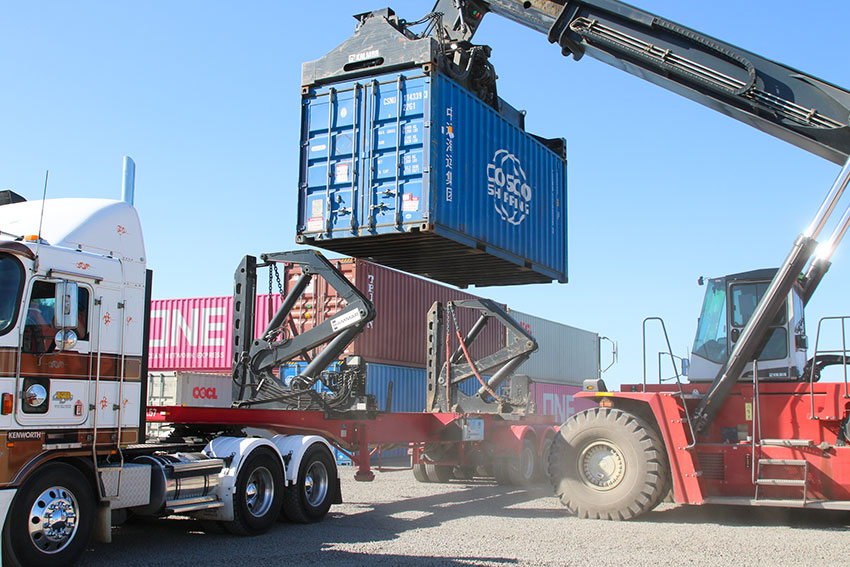
By Peter Hill, general manager Kreskas Bros Transport.

Kreskas Bros Transport is the largest carrier by road of import and export shipping containers between the Port of Melbourne and Regional Victoria. We service a raft of local businesses from large scale such as Bega Cheese, Freedom Foods, SPC, Pental products through to businesses that may bring one import container into their business in a year.
Our role is to work with our client’s shipping agents and freight forwarders to collect and return empty containers from the 10-12 empty container yards in and around Western Melbourne and to also deliver loaded export containers and collect import containers from the three Melbourne stevedores. Shipping containers are either 20’ or 40’ in size and can weigh up to 31,000kg fully laden.
The bulk of the containers we transport come from or to food processing facilities and as such we have been allowed to operate during this crisis. That has been good news for our team of 70 staff and their families and the local suppliers we engage to support our business.

Some of our admin staff have been able to work from home, but the bulk of the team need to be at their stations to keep us running. Truck drivers, container handler operators, forklift operators, mechanics and operations staff cannot do what they do from home, unfortunately. It has led to the now-common ‘social distancing’ barriers at our sites, as well as disinfecting and sanitizing equipment issued to each of our people and onto our equipment. We also have infrared thermometers to check the body temperature of any of our team concerned about their health.
Locally the virus has also introduced new layers into completing our jobs with our clients also introducing onsite monitoring, questionnaires and their own procedures to keep illness from their sites. All understandable but it has slowed the time it takes to collect or deliver a container and has extended the hours we work to get the job done.
Out of the port end, things have also slowed. Import containers are identified through the border security process as a risk either from the type or origin of the load or in fact where the container has travelled over the past 30 days. When these risks are assessed and totaled the container may need an external steam clean, or fumigation or at worse unpack and fumigation. We have seen a dramatic increase in fumigations based on imports coming in from high-risk countries. Five months ago, it may have been a container a fortnight, it is now several containers a week. A process that usually takes one to two days is now taking anything from two to four weeks because of the sheer volume identified as a risk! In our current way of manufacturing for products to be made ‘just in time,’ this delay has brought significant challenges to the supply chains of our clients.
This delay has affected the availability of empty containers to be filled as exports!
Inconvenient yes – but biosecurity must take precedence for those of us in rural Australia.
As I look forward, I think a lot of what has been introduced around extra cleanliness on site, equipment and personal hygiene should remain. It has demonstrated that employment is something to be celebrated and not assumed. It has shown we have a minority of horribly selfish and careless people in our society but that under adversity the bulk of us have learnt to ‘chill’ a little and have consideration for others in both our work and professional communities.




